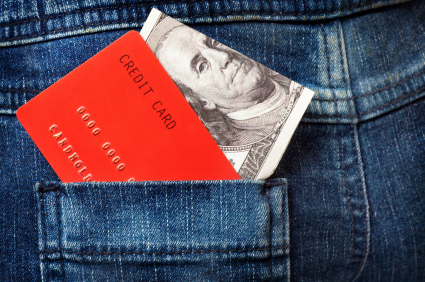By now, we’re all aware that managing money can be quite difficult. Here are some surefire ways, straight from nationally recognized financial expert Mark Kantrowitz, on how to help stay on track when it comes to pinching pennies.
First, exercise control over your money by increasing awareness of your spending habits. Start by preparing a descriptive budget, where you track all of your spending for a month.
Any time you spend money, get a receipt. When you buy snacks and beverages from a vending machine, write down the amount in a notebook.
Each evening, record the spending in a spreadsheet or money management tool like Quicken or Microsoft Money. Even better is Mint.com, because it is free.
Assign each expense to a broad category like food, clothing, shelter, medical care, transportation, insurance, income taxes, gadgets and entertainment.
Tag each expense to indicate whether it is a “need” or a “want”. A need is a mandatory expense where you would die or go to prison if you didn't spend the money. A want is a discretionary expense. For example, a cell phone and cable TV are luxuries, not necessities.
At the end of the month, calculate the totals for each category and tag. Being aware of how much you spend in each category will help you exercise restraint. Compare the totals against your income to see if you are spending beyond your means - more than you earn each month.
If you carry a balance on your credit cards, you are spending beyond your means. Never charge more than you can afford to repay at the end of the month.
Money Saver’s Tips & Tricks:
•Be careful about using credit cards. Spending money with a credit card feels the same whether you are paying $5 or $500. It doesn't feel like you are spending money, even though you are. Credit cards can also have high interest rates.
•Wait a few days before spending money on a big ticket item. This helps you avoid buying on impulse. If you change your mind after buying something, return it to the store for a refund.
•Nothing is free. Student loans and credit cards are not free money. Every dollar you spend in student loan money may cost you two dollars by the time you pay back the debt.
•Live at your level.The bottom line is to live like a student while you are in school so you don’t have to live like a student after you graduate.
If you’d like to learn more about managing your money, here are some resources Kantro recommends:
• "Get a Financial Life: Personal Finance in your Twenties and Thirties" by Beth Kobliner
• "The Money Book for the Young, Fabulous and Broke" by Suze Orman
• Consumer Reports magazine
• Consumer Reports Money Adviser
•Wait a few days before spending money on a big ticket item. This helps you avoid buying on impulse. If you change your mind after buying something, return it to the store for a refund.
•Nothing is free. Student loans and credit cards are not free money. Every dollar you spend in student loan money may cost you two dollars by the time you pay back the debt.
•Live at your level.The bottom line is to live like a student while you are in school so you don’t have to live like a student after you graduate.
If you’d like to learn more about managing your money, here are some resources Kantro recommends:
• "Get a Financial Life: Personal Finance in your Twenties and Thirties" by Beth Kobliner
• "The Money Book for the Young, Fabulous and Broke" by Suze Orman
• Consumer Reports magazine
• Consumer Reports Money Adviser
